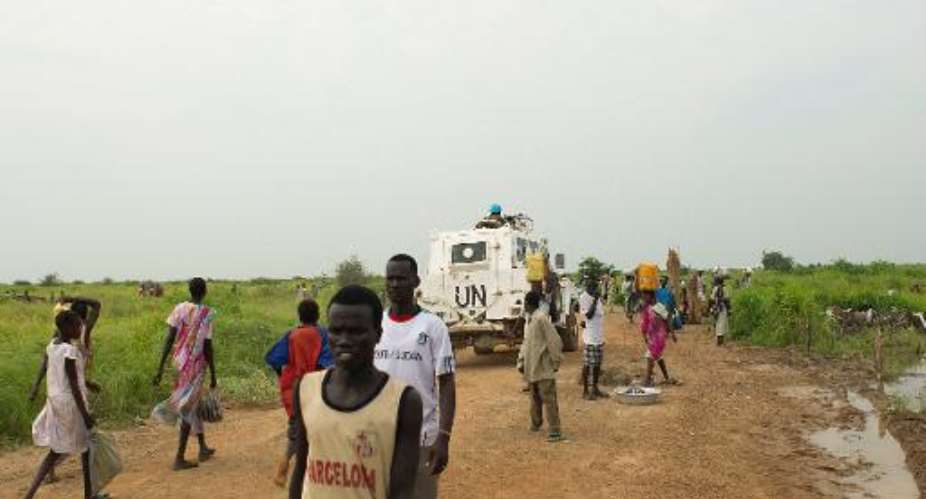Juba (AFP) - South Sudanese rebels launched an offensive to retake a key town near the border with Ethiopia on Sunday in what the United Nations said was a clear violation of a truce agreement.
"This attack represents the most serious resumption of hostilities" since President Salva Kiir and his former deputy, rebel leader Riek Machar, met in May and recommitted to a January ceasefire, the UN mission said in a statement.
The fighters loyal to Machar struck Nasir, their former headquarters, located 500 kilometres north of Juba and close to Ethiopia, which was retaken by government forces in May.
UNMISS, the UN mission, laid the blame squarely for the truce violation with Machar's forces. "The attack is a clear violation of the Cessation of Hostilities Agreement," it said.
But a spokesman for Machar's forces, Lul Kuang, defended their moves as an act of "self-defence" after what he described as several government attempts to arrest their military commander.
"The fall of Nasir now paves the way for military resources to be refocused on Poloich Oil Fields, Maban and Malakal", Kuang said in a statement, referring to the main remaining oil field still in activity.
South Sudanese army spokesman Philip Aguer denied Nasir had fallen, describing fighting as "still ongoing".
Aguer said army forces had staged nine offensives on Nasir on Sunday.
Only days earlier mediators had pressed the rival sides to resume peace talks being held in Ethiopia, or face increased sanctions.
Those talks, moderated by East African leaders, are designed to lead to a transitional government and ceasefire but have yielded little progress so far.
Fighting had abated since May in part due to heavy rains and poor roads that hampered troop and equipment movements.
Meanwhile, the violence in South Sudan has left thousands dead and displaced 1.5 million people, and aid agencies warn of a looming famine.





 Chief arrested for killing soldier at Kasoa over land
Chief arrested for killing soldier at Kasoa over land
 GAF probes soldier’s murder at Kasoa Millenium City
GAF probes soldier’s murder at Kasoa Millenium City
 Ghana steps up effort to pass new Labour law
Ghana steps up effort to pass new Labour law
 AG advises EOCO against money laundering probe into Cecilia Abena Dapaah’s affai...
AG advises EOCO against money laundering probe into Cecilia Abena Dapaah’s affai...
 May Day: I'll prioritise welfare of workers, abolish compulsory retirement age a...
May Day: I'll prioritise welfare of workers, abolish compulsory retirement age a...
 V/R: Adaklu-Tevikpo murder suspect arrested from hideout
V/R: Adaklu-Tevikpo murder suspect arrested from hideout
 Kasoa: Soldier killed by alleged land guards over land dispute — GAF
Kasoa: Soldier killed by alleged land guards over land dispute — GAF
 Fatal shooting of soldier happened at Gomoa East not Kasoa; stop tarnishing our ...
Fatal shooting of soldier happened at Gomoa East not Kasoa; stop tarnishing our ...
 ‘We condemn unprovoked attack in no uncertain terms’ — GAF on fatal shooting of ...
‘We condemn unprovoked attack in no uncertain terms’ — GAF on fatal shooting of ...
 Ghanaians urged to ensure violence free elections on December 7
Ghanaians urged to ensure violence free elections on December 7
